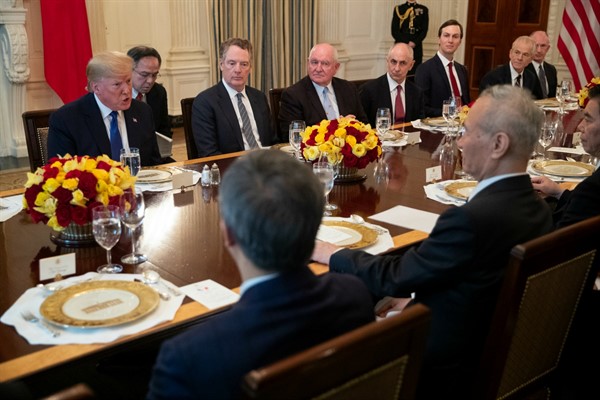Not long ago, The New York Times labeled President Donald Trump the “biggest obstacle” to his own administration’s China policy. Trump’s trade war with China, which he launched as part of his campaign promise to get tough on its unfair trade practices, has always had unclear and shifting goals, while producing minimal results. Even as his administration has taken a relatively tough line against China’s high-tech industrial policies, Trump’s odd affinity for authoritarian leaders, including his “good friend” in China, Xi Jinping, kept getting in the way of a coherent policy, especially when it came to protecting human rights.
Any ambivalent feelings about China and its government seem to have vanished with Trump’s need for a scapegoat to blame for his mishandling of the coronavirus pandemic. Until this summer, the White House mostly ignored Beijing’s efforts to squelch dissent in Hong Kong and took relatively minor measures in response to egregious human rights violations against the mostly Muslim Uighur minority in Xinjiang. In his memoir about his time in the White House, former national security adviser John Bolton asserts that, after large protests broke out in Hong Kong last year, Trump said he didn’t want to get involved. “We have human rights problems, too,” Bolton heard him say. Worse, while China was putting Uighurs in so-called “reeducation” centers that are really forced labor camps, Bolton claims that Trump told Xi to keep building the internment camps because he believed that was “exactly the right thing to do.”
But now, the gloves have suddenly come off, as the U.S. has imposed an array of new sanctions over Beijing’s repression of dissent in Hong Kong and its human rights abuses in Xinjiang. The White House has also further tightened export controls on Chinese telecom giant Huawei and, earlier this month, it issued an order banning Americans from doing business with two hugely popular Chinese-owned apps, TikTok and WeChat.

